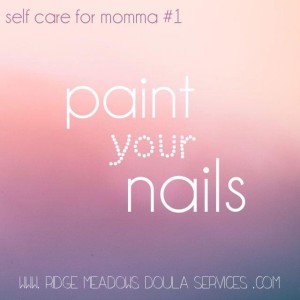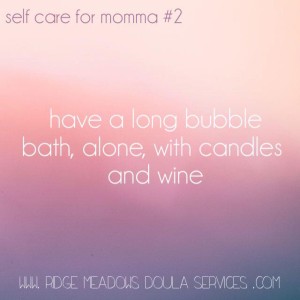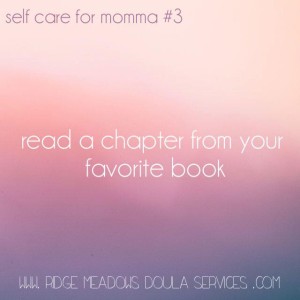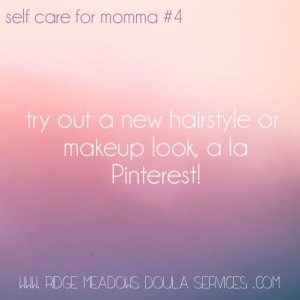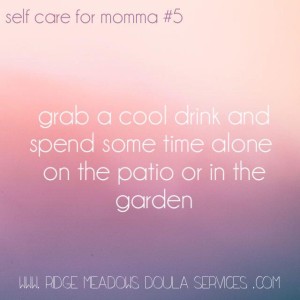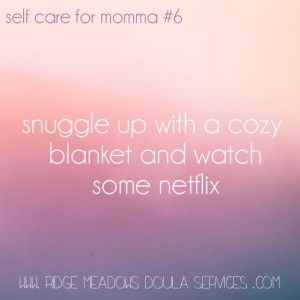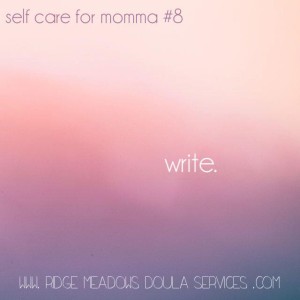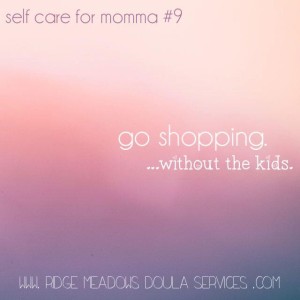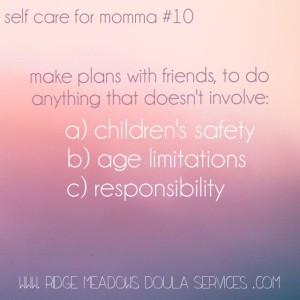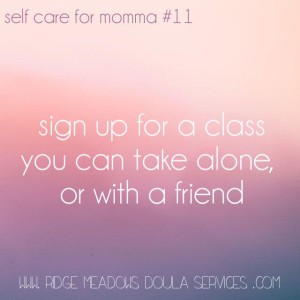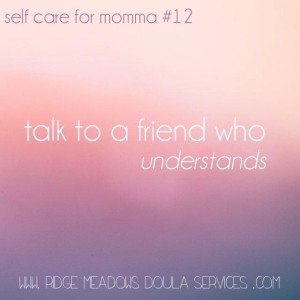If you are putting babies to bed, you might want to save this for later. [Read more…]
Self Care
As Mother’s Day comes closer, us mothers start making requests to our partners- pedicures, house clean, breakfast in bed…. At first for Mother’s Day I wanted to spend every minute with my family– have a nice meal, spend time in the sun, drink a coffee, go for a walk etc. We did this a few years and then I asked for something different. I asked for (gasp) time alone. This was difficult a difficult request for me. I questioned my decision a lot “Doesn’t a good mom want to be with her family on Mother’s Day?” “Isn’t Mother’s Day about family time?” It took me some time to realize that Mother’s Day was about celebrating Mothers and there is no right or wrong way to do it. It can be individual.
Society makes us mother’s feel like we can do it all. Mother’s can work, take care of the family, make dinner, clean the house all while looking stylish right? Pinterest has all the ideas for meals, crafts and hairstyles and Facebook makes all families appear high functioning all the time right? Maybe this was how it once was, maybe this is how we were taught, maybe this is our intention but this can NOT be reality. Especially without self care.
Taking care of ourselves as mothers and woman shouldn’t be considered selfish. We can’t expect to take care of our children if we cant take care of ourselves. I preach self care to all my parenting groups, to all my mom friends, to all my families I work with. Self care needs to be implemented and planned in our loves in order for us to be a helpful person in our families. It refreshes and recharges people. It should be a requirement of parenting.
When talking about Mother’s Day with Erin and Allison (the birth doula collective) We talked in length about the challenges of being a mom– a work at home mom, a stay at home mom, a work away from home mom. We all come with our lists of pros and cons. Self care is equally as important no matter what “type” of mom you are.
Self care mama is a list of 12 ideas that Erin made for Mother’s Day. We encourage each mother reading this to take a minute for yourself and CARE for you. Please take self care into consideration, please share with your friends, your mom, your neighbors.
The language of Birth
During the training that Nicole and I attended in March, one of the most inspiring things we took away was considering the language we use when we speak about birth. As a culture, we have cultivated a respect for doctors and medical professionals for their dedication to education and experience. Along with this respect comes a natural obligation to use the language that is medically accepted, despite not being accurate or even inspiring.
Labour
Contraction
Delivery
When you think of these, they bring up visions of doctors and hospitals, amongst other things. Labour is a form of hard work, and though birthing women do tend to exert energy I wouldn’t call them “labourers”, likethey’re on a construction site. Contraction is a word that naturally makes you tense up your muscles unconsciously. When you actually think about what “contraction” means- an involuntary cringe without a set beginning or end- it makes your anticipation of it that much more brutal. Who wants to be in fear of their muscles contracting and expanding, without really knowing when it will end? Then there’s “delivery”… as if your baby will be presented to you on your doorstep wrapped in parchment and tied with string. Of course, when a doctor is the one attending your birth, they sometimes like to think that you need to be assisted through your birth with their help, not the other way around, and thus they will deliver your baby to you once they’ve saved you from your strong contractions and prevented you from labouring too hard with all of their tools.
In reality, you birth your baby. Birthing is individual and unpredictable. You feel sensations you’ve never felt before; they come in waves of varying lengths and durations, but they have a gradual flow of beginning.. to middle.. to end. It takes presence of mind to get through such a new feeling, and being afraid of what you will feel only increases the likelihood that you won’t like it. Support during these sensations can be incredibly helpful, especially from someone who understands the feeling and knows how to help you to manage the sensation yourself. When you start experiencing these sensations, you have entered into an incredible time: early birthing. Your body will continue to wave, and the waves will come sooner and last a bit longer together. These waves are the evidence that your body knows how to birth, and your baby is on their way into the world. You will then begin to actively birth, and soon reach transition, the incredible time when your body quiets down after all that sensation, and stores up some last energy before your baby is born. This is when your baby begins to help out a bit more. Your body won’t be able to control when your baby decides it is time; they push their way into the world in a way that isn’t stoppable. It’s a reflex that your baby triggers when the time has come, and then your body responds in an incredible way.
During this time, your care provider should be watching intently, but not interfering, unless it is medically necessary. A birthing mother and her baby have the rights as human beings to birth unassisted, untouched and uninterrupted. Through the entire of your birthing process, this stands true. Sometimes the opportunity will arise when medical intervention is necessary, and in these situations a care provider is a great asset to have around. But in a naturally occurring birth without induction, with a mother who is aware that what her body is doing is natural and amazing, babies tend to be born beautifully into their own mother’s arms …and they definitely aren’t wrapped in paper.
So, when you are imagining the birth you want for yourself and your baby, please consider how the language you surround yourself with affects the environment you birth in. Doctors or midwives, hospital or home, medical intervention or augmention, doulas or other birth supports- you have options to create an environment that promotes a positive birthing process,should you so choose. We encourage you to feel empowered about making decisions that will help you to rock your birth!
Happy Birthing- Erin
What does a doula bring to a birth with her?
What does a doula bring to a birth with her?
We arrive to a birth supplied with a whole shlew of items to help us help a birthing woman. Sometimes, we use every single item. Sometimes, we use nothing but ourselves.
There are definitely a few go-to items that are incredibly handy:

Essential oils. Particularly lavender, peppermint and orange. They help to relieve tension, control emotion and provide distraction.

Massage tools. Most often these are our hands, as well as the partner’s or birthing buddy’s hands. Though we do have some tools to help out if hands aren’t quite enough, as well as some massage oil and lotion.

Food. Birth is a big event that requires sustenance! Energy rich, nourishing snacks and healthy drinks like coconut water take up nearly half of my birth bag.

Battery operated candles. These help create a nice ambiance in hospital rooms, as well as are a safe option to not have to think about burning someone’s house down while they’re home birthing.
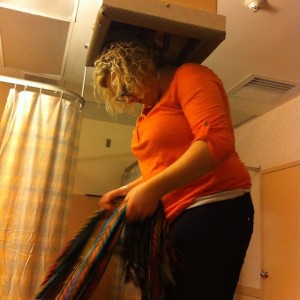
Rebozo. This is a fancy name for a handwoven scarf that is used in a series of techniques for relieving tension and providing comfort. They are a gorgeous addition to the dynamic of the birthing room, and something to concentrate your attention on while you’re birthing.
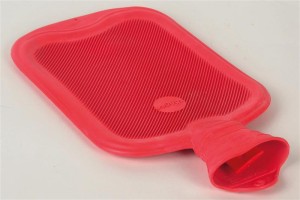
Hot water bottle/heat pack. Birthing woman love warm sensation. Heat is a great way to relieve tension and distract from a wave.
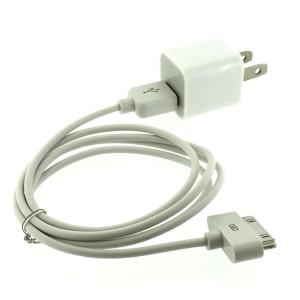
Phone charger. Birth sometimes takes a while, which is totally normal. I like having a full charge so I have access to the resources stored on my phone that I may need.

Change or a Visa . Hospital parking is blinking expensive sometimes! We come prepared!
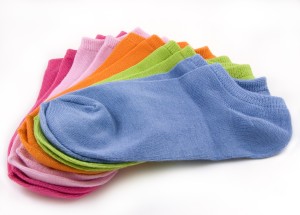
Change of socks. Nobody likes smelly feet; Especially not pregnant women. In addition, gum and mints are also abundance.

(For me, Erin, in particular) breast pump & cooler. One of the reasons I am so good with Breastfeeding support, is because I am actively participating in it haha. I pump at intervals when I am not needed during a birth so I have milk to supply my littlest with when I get home.
A tens machine (read more about them here)
These are just some of the things we at Ridge Meadows Doula Services all carry, but every doula is a bit different depending on what their particular strengths are. At the end of the day, our desire to support is the best tool we possess.
Happy Birthing, Erin
How to help your children tell the truth
Do you find yourself stretching the truth with your little ones? How do we expect them to tell the truth if they see little white lies coming out of the mouths of people they trust and look up to? Role model the behavior you want to see from your child. This means, telling the truth all the time. Sometimes this means you have to answer questions you weren’t prepared to.
Telling the Truth- Kids can’t distinguish “little white lies” from other lies. So don’t let your child overhear you tell your friend, “I would totally come over for dinner but we have family coming over,” if you’re clearly not . Your child will imitate what he watches you do. Sometimes this means answering the hard questions and not giving your child little white lies- This is a tough one because children ask really complicated questions. My daughter asked shortly before she was 2.5″ how do babies got in bellies” “Where the toilet water goes when it’s flushed” “Why are grandma and grandpa not married” “Where does the food go after I swallow it”. She was a very inquisitive child with VERY hard to answer questions. Some of the questions I would answer in simple age appropriate answers, others I would say I have to look them up.
Not Shaming- Guilt and shame are very different. Guilt comes from inside a child , and feels remorse from twhat they have done. Guilt can lead to accountability, since that child is likely feeling regret and responsibility for his or her actions. Shame is more about feelings worthlessness and is likely to cause that child to withdraw in embarrassment. The difference here is that shame does not lead to accountability—and may lead to a decrease in effective problem-solving skills now and later in life.
Lastly, this will take time… But figure out WHY they are lying. Are they embarrassed? Are they exaggerating? (is this age appropriate exaggeration like a fantasy?), is it low self esteem and they are bragging?
Now that you have figured out the basis on what’s happening, what do you do? How do you discipline without shaming? In my eyes there is not one way to “dicipline” a child. Every child is different and every situation and “WHY” is different. Here is a link to a great post from Janet Landsbury that may be helpful. http://www.janetlansbury.com/2012/02/what-your-toddler-thinks-of-discipline/
About the Author
Nicole Chambers has over 15 years experience in Early Childhood and Infant and Toddler Education working with children from age 6 weeks+. She then decided to be a birth doula and postpartum doula and trained in 2012 & 2013. When she is not working as a Doula she is a Children and Youth Counsellor, Parenting Group Facilitator and Parent-Child Mother Goose Facilitator at a non-profit agency. Nicole is always learning and updating her skills she has completed her Placenta Encapsulation training, Expressive Play Therapy Certificate and continues to take courses on child development, trauma, birth and adolescence.
